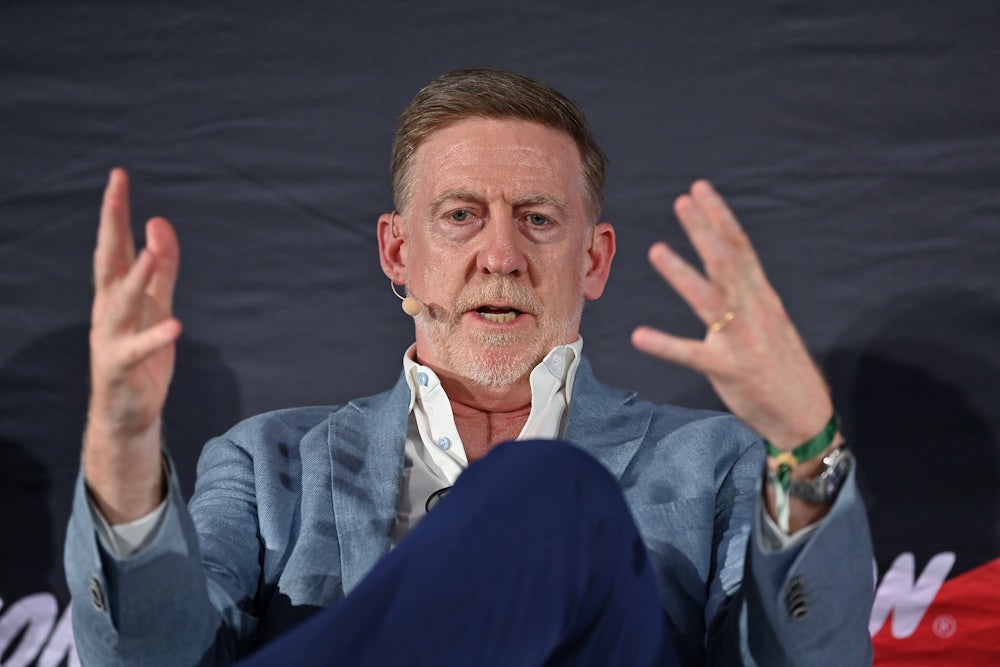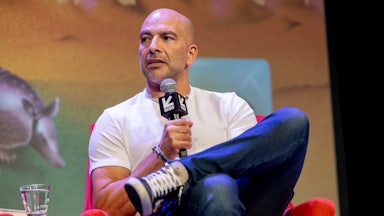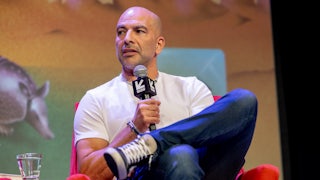There comes a moment when journalistic integrity meets corporate reality. For Bill Owens, the executive producer of 60 Minutes, that moment arrived on Tuesday when he announced his resignation to a stunned newsroom.
“It’s clear that I’ve become the problem. I am the corporation’s problem,” Owens told his staff, his voice breaking as he struggled to maintain his composure. After 37 years at CBS News and six years leading the iconic news program, Owens found himself backed into a corner where journalistic independence gave way to corporate and political pressure.
What happened here is that the Trump administration effectively forced out the leader of one of America’s most respected news programs. And nobody at Paramount—CBS News’s parent company—had the backbone to stand up for journalistic integrity.
This isn’t just about one producer losing his job. This is a five-alarm fire for press freedom in America.
The catalyst? A $10 billion lawsuit filed by Trump against CBS over what he called a “deceptively edited” October interview with then–Vice President Kamala Harris. Legal experts have called the suit frivolous, but that hardly matters when corporate interests are at stake.
The real story here is about Shari Redstone, the controlling shareholder of Paramount, who’s desperately trying to secure Trump administration approval for her company’s multibillion-dollar sale to Skydance, a company run by the son of tech billionaire and Trump supporter Larry Ellison. Redstone has reportedly pushed for a settlement with Trump, despite the absurdity of his legal claims.
Owens, to his immense credit, refused to cave.
“Over the past months, it has become clear that I would not be allowed to run the show as I have always run it, to make independent decisions based on what was right for 60 Minutes, right for the audience,” Owens wrote in his resignation memo.
At Tuesday’s emotional meeting, which Oliver Darcy’s Status newsletter obtained audio of, Owens revealed the creeping corporate control that has infected CBS News. “In a million years, the corporation didn’t know what was coming up—they trusted 60 Minutes to report the stories and program the broadcast the way 60 Minutes saw fit,” he said, adding that any change to that arrangement created “a really slippery slope.”
That slippery slope began months ago. In January, Redstone complained to CBS executives about a 60 Minutes segment on the Israel-Hamas war. A day later, the company appointed Susan Zirinsky to oversee the news division’s “journalistic standards”—a thinly veiled move to review politically sensitive 60 Minutes segments before they aired.
For a program that has operated independently for 57 years, this was an unprecedented intrusion.
The staffers at 60 Minutes certainly understood what was happening. Lesley Stahl, who has spent more than 50 years at CBS, told Owens, “I think you taught us all a lesson of following principle and being courageous and fighting for what you believe in. And I know you have taken a hell of a beating.” She ended with a devastating admission: “I honestly don’t know how we are going to go on without you. And I mean that.”
Scott Pelley added that this wasn’t something Owens was doing voluntarily: “This isn’t something Bill is doing on his own volition. You’re not being abandoned. There was no choice in any of this.”
The message couldn’t be clearer: Owens was pushed out for defending journalistic independence against Trump’s rage and corporate appeasement.
We’ve seen this before. Media consolidation means fewer independent voices, and massive corporate parent companies with business interests far beyond journalism make editorial decisions based on what’s good for shareholder value, not what’s good for democracy.
For Trump, this is already a win. He’s managed to depose the leader of a news program that has consistently held him accountable with aggressive coverage. Now, even if CBS continues to cover the Trump administration, we have to question whether that coverage has been compromised by Paramount executives eager to please the administration—and whether the story assignments, editing decisions, and interview questions will be filtered through the lens of “Will this piss off Trump?”
If Redstone agrees to settle Trump’s lawsuit to push her merger through, it won’t just be a capitulation; it will be a permanent stain on the legacy of CBS News. The house that Walter Cronkite built will have surrendered to presidential intimidation.
The most chilling part of all this is what it means for the rest of the media landscape. If 60 Minutes—one of the most powerful, respected, and economically successful news programs in American history—can be brought to heel, what hope do smaller outlets have?
When we allow presidents to effectively determine who runs our news organizations, we’ve crossed into dangerous territory. Defending a free press isn’t some abstract principle—it’s the cornerstone of a functioning democracy.
As viewers, we should be deeply skeptical of CBS News coverage moving forward. When you watch Scott Pelley deliver the news with his trademark gravitas, or when Lesley Stahl interviews a controversial figure, remember that behind the scenes, a Trump-size sword of Damocles hangs over the editorial process.
Bill Owens may be gone, but the questions his departure raises should haunt us all.










